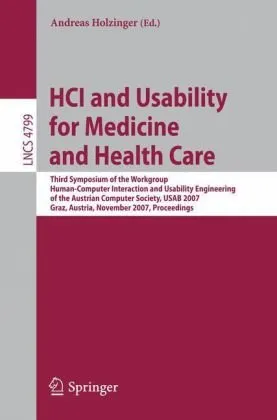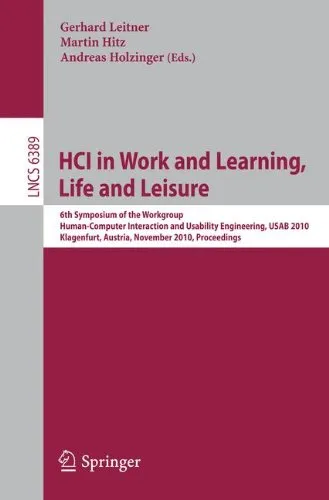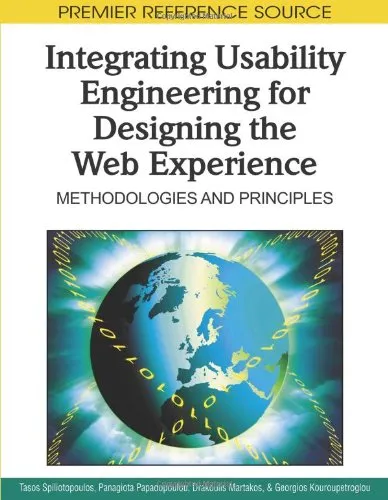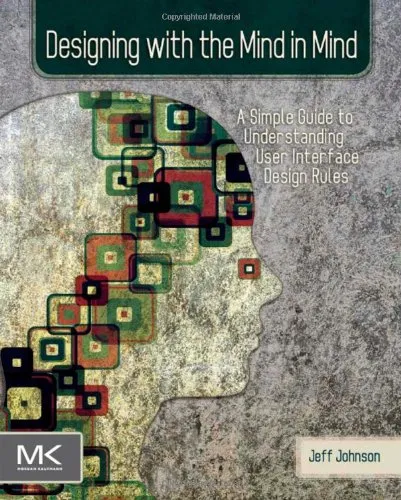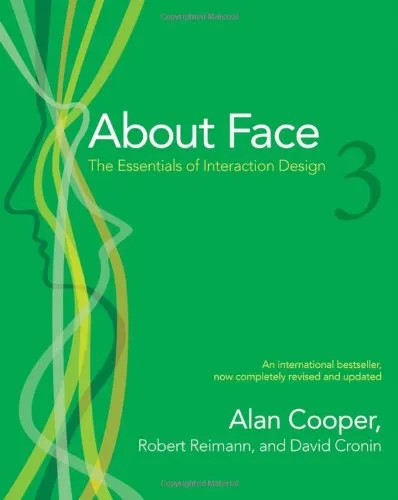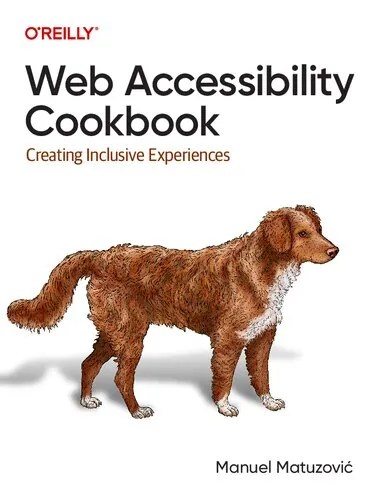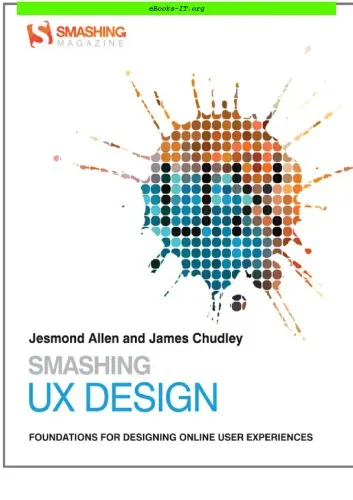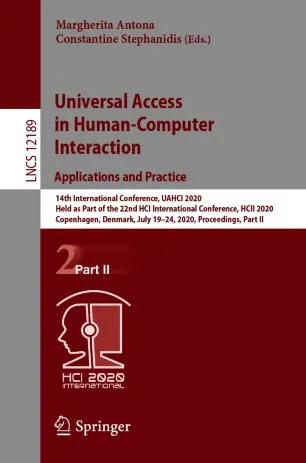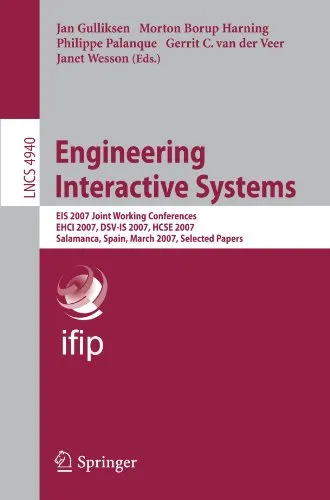HCI and Usability for Medicine and Health Care: Third Symposium of the Workgroup Human-Computer Interaction and Usability Engineering of the Austrian Computer Society, USAB 2007 Graz, Austria, November, 22, 2007. Proceedings
4.0
Reviews from our users

You Can Ask your questions from this book's AI after Login
Each download or ask from book AI costs 2 points. To earn more free points, please visit the Points Guide Page and complete some valuable actions.Related Refrences:
Persian Summary
Introduction to HCI and Usability for Medicine and Health Care
As healthcare delivery continues to evolve with technological advancements, the intersection of human-computer interaction (HCI) and usability has become increasingly significant. The proceedings of the Third Symposium of the Workgroup Human-Computer Interaction and Usability Engineering of the Austrian Computer Society, held in Graz, Austria, on November 22, 2007, serve as a critical resource for understanding these advancements. This book, curated by Harold Thimbleby and edited by Andreas Holzinger, offers an in-depth exploration of the challenges and opportunities in HCI and usability within the realm of medicine and healthcare.
Detailed Summary of the Book
The book comprises a comprehensive collection of research papers and case studies presented during the symposium. It delves into various aspects of HCI and usability, emphasizing their applications in the healthcare sector. The content is structured to address several key themes, including user-centered design, the integration of technology in healthcare settings, and the evaluation of user interfaces in medical devices and applications.
Each chapter provides insights into different methodologies and approaches, showcasing innovative solutions to prevalent usability issues in healthcare. The discussions range from theoretical foundations to practical implementations, offering both breadth and depth in the exploration of HCI in medical contexts. This makes the book an invaluable asset for researchers, practitioners, and policymakers interested in the design and deployment of user-friendly health technologies.
Key Takeaways
- User-Centered Design: The importance of involving end-users in the design and development process of healthcare technologies to ensure usability and efficiency.
- Innovative Technologies: Insights into advanced technologies, such as virtual reality, wearable devices, and telemedicine, and their impact on healthcare delivery.
- Evaluation Metrics: Discussion on various methods to assess and enhance the usability of healthcare systems, contributing to better patient outcomes.
- Interdisciplinary Collaboration: The role of interdisciplinary teams in fostering innovation and solving complex usability problems in healthcare environments.
Famous Quotes from the Book
While the book itself is a technical collection of proceedings rather than a narrative or subjective exploration, it is peppered with insightful observations from leading experts in the field of HCI and usability:
"The true measure of a successful healthcare system is in its usability and its capacity to seamlessly integrate with the workflows of its users."
"Innovation in healthcare technology is not merely about new features, but about enhancing accessibility and improving patient experiences."
Why This Book Matters
This book stands as a pivotal reference point in the juxtaposition of human-computer interaction principles with healthcare needs. As medical technology becomes more complex and pervasive, the necessity for systems that are both functional and intuitive becomes increasingly evident. The insights provided in these proceedings contribute significantly to the body of knowledge required to build systems that are not only technically proficient but also aligned with the needs of healthcare professionals and patients.
Furthermore, the book underscores the critical importance of designing with empathy, ensuring that the end-users are not only supported by technology but empowered by it. This work does more than just document the proceedings of a symposium; it acts as a catalyst for ongoing dialogue and development in the field.
In a world where healthcare challenges are more pressing than ever, the integration of effective HCI and usability principles can lead to improved healthcare outcomes, higher patient satisfaction, and overall better healthcare systems. This book provides a foundational understanding essential for anyone involved in the design, implementation, or study of health technologies.
Free Direct Download
You Can Download this book after Login
Accessing books through legal platforms and public libraries not only supports the rights of authors and publishers but also contributes to the sustainability of reading culture. Before downloading, please take a moment to consider these options.
Find this book on other platforms:
WorldCat helps you find books in libraries worldwide.
See ratings, reviews, and discussions on Goodreads.
Find and buy rare or used books on AbeBooks.
1319
بازدید4.0
امتیاز0
نظر98%
رضایتReviews:
4.0
Based on 0 users review
Questions & Answers
Ask questions about this book or help others by answering
No questions yet. Be the first to ask!
